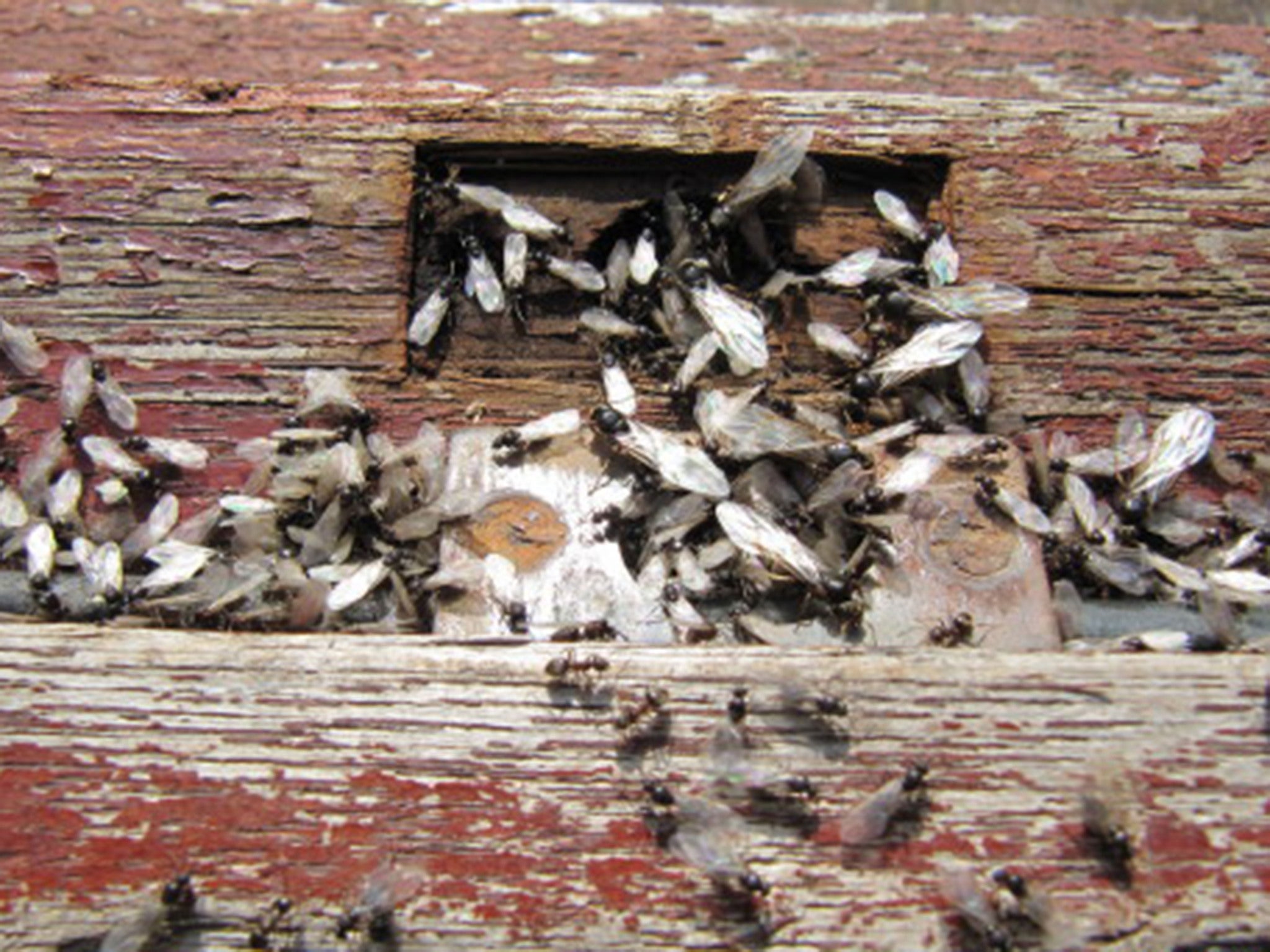Flying ant day: Why do the insects swarm in the summer heat?
Ants swarm together to take part in the nuptial flight

As the summer weather ushers in balmy evenings, flying ants are taking to the skies.
Residents of London are tweeting that the winged insects are swarming in the capital.
But what prompts the creatures to take over streets, as if at random?
What causes ‘flying ant day?’
The winged insects are known as alates, and are the sexually mature queens and males of the common black ants.
Each year, the alates leave the respective nests in swarms and look for mates. They will have prepared for this occasion for weeks.
To mate, male and female insects join together in the sky, in a phenomenon known as the nuptial flight.
Ants mate in the summertime because warm, long, humid days create the perfect conditions in which to fly and dig new nests.
However, scientists are still unsure how ant colonies manage to synchronise their flights.
Why do the ants swarm together?
The winged creatures leave their nests in swarms because it protects them from predators, but it also means they’re more likely to find a mate.
After they’ve mated, the males die but the queens shed their wings and attempt to find a place to build a new colony. These queens can live for a staggering 15 years, and remain fertile after they have mated.
How do such a large number of ants affect the ecosystem?
By burrowing to create a new nest, ants improve the quality of soil, and help to pollinate flowers. Unluckily for the insects, flying ant day also provides a feast for birds including swifts and gulls.
Does it only happen once a year?
A recent study by the Society of Biology showed that flying ant days don’t occur in a 24-hour period, but can stretch over a month.
Join our commenting forum
Join thought-provoking conversations, follow other Independent readers and see their replies
Comments